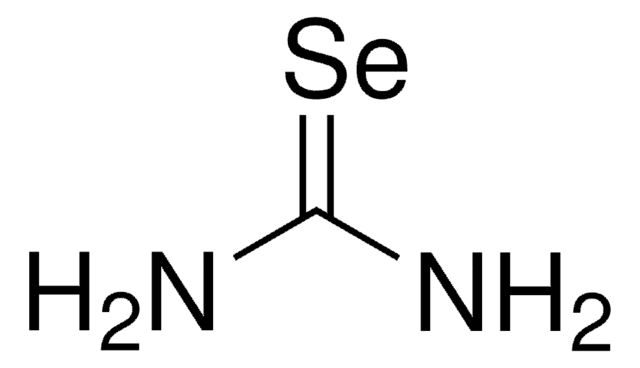398187
Xylenol Orange tetrasodium salt
ACS reagent
Synonym(s):
3,3′-Bis[N,N-bis(carboxymethyl)aminomethyl]-o-cresolsulfonephthalein tetrasodium salt
About This Item
Recommended Products
grade
ACS reagent
Quality Level
form
powder or crystals
color
very dark brown to very dark red
mp
195 °C (dec.) (lit.)
λmax
580 nm
application(s)
diagnostic assay manufacturing
hematology
histology
storage temp.
room temp
SMILES string
[Na+].[Na+].[Na+].[Na+].Cc1cc(cc(CN(CC([O-])=O)CC([O-])=O)c1O)C2(OS(=O)(=O)c3ccccc23)c4cc(C)c(O)c(CN(CC([O-])=O)CC([O-])=O)c4
InChI
1S/C31H32N2O13S.4Na/c1-17-7-21(9-19(29(17)42)11-32(13-25(34)35)14-26(36)37)31(23-5-3-4-6-24(23)47(44,45)46-31)22-8-18(2)30(43)20(10-22)12-33(15-27(38)39)16-28(40)41;;;;/h3-10,42-43H,11-16H2,1-2H3,(H,34,35)(H,36,37)(H,38,39)(H,40,41);;;;/q;4*+1/p-4
InChI key
YIIQUYHVWRJXEM-UHFFFAOYSA-J
Looking for similar products? Visit Product Comparison Guide
Related Categories
General description
Application
- Xylenol Orange has been used as a vital stain to study calcification in bone development, injury, and repair.
- It has been used in the fluorescent histochemical detection of alkaline phosphatase.
- It has been used in FBX (ferrous benzoic xylenol orange) gel preparation to study the effects of MRI (magnetic resonance imaging) parameters on image quality.
Storage Class
11 - Combustible Solids
wgk_germany
WGK 3
flash_point_f
Not applicable
flash_point_c
Not applicable
ppe
Eyeshields, Gloves, type N95 (US)
Choose from one of the most recent versions:
Certificates of Analysis (COA)
Don't see the Right Version?
If you require a particular version, you can look up a specific certificate by the Lot or Batch number.
Already Own This Product?
Find documentation for the products that you have recently purchased in the Document Library.
Customers Also Viewed
Our team of scientists has experience in all areas of research including Life Science, Material Science, Chemical Synthesis, Chromatography, Analytical and many others.
Contact Technical Service









